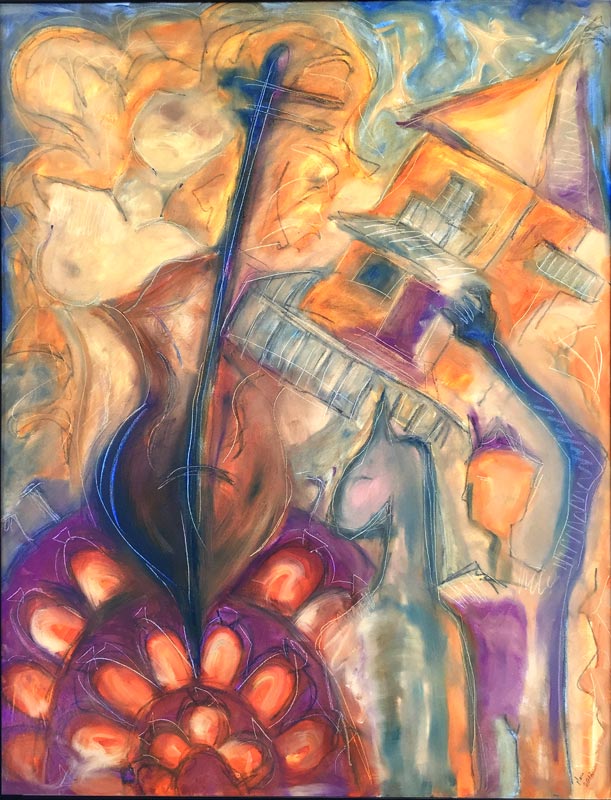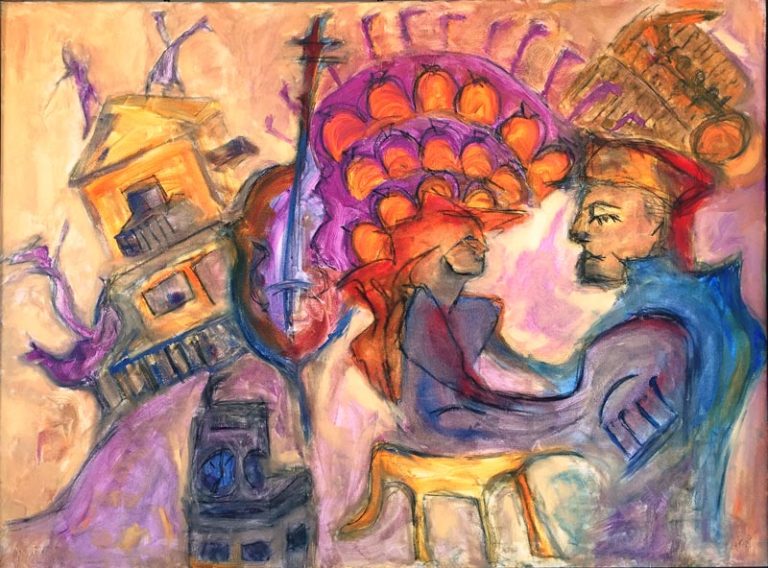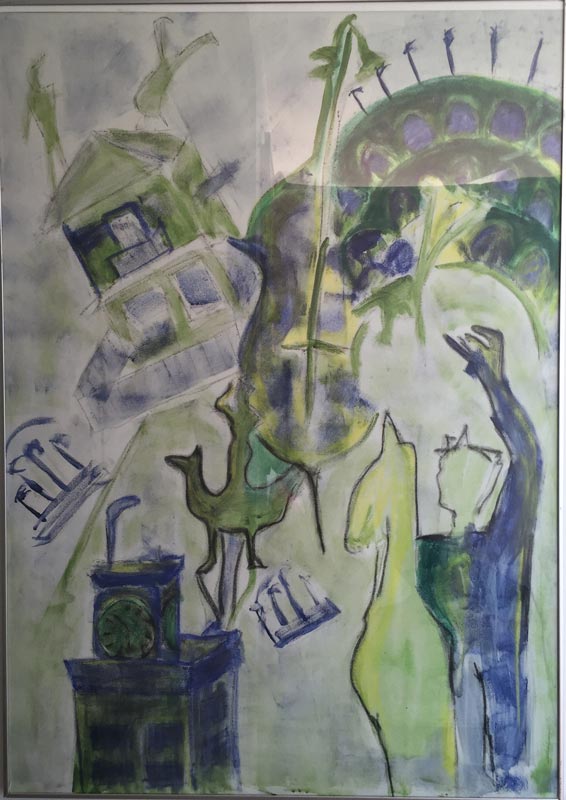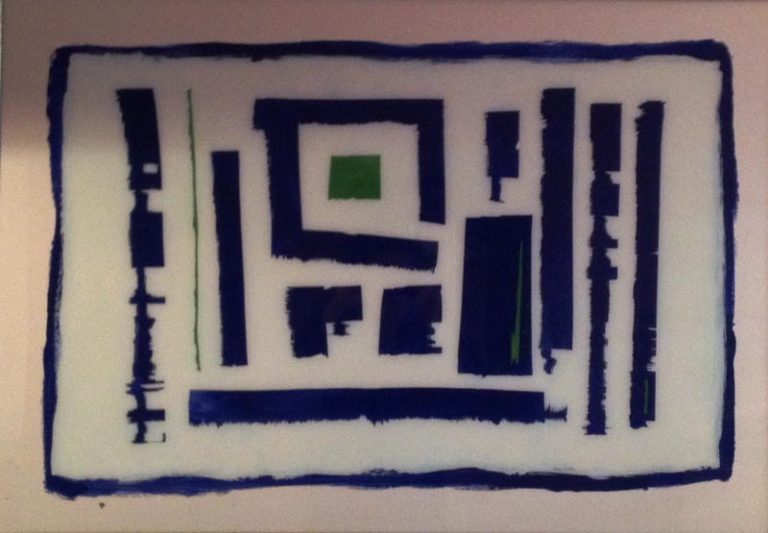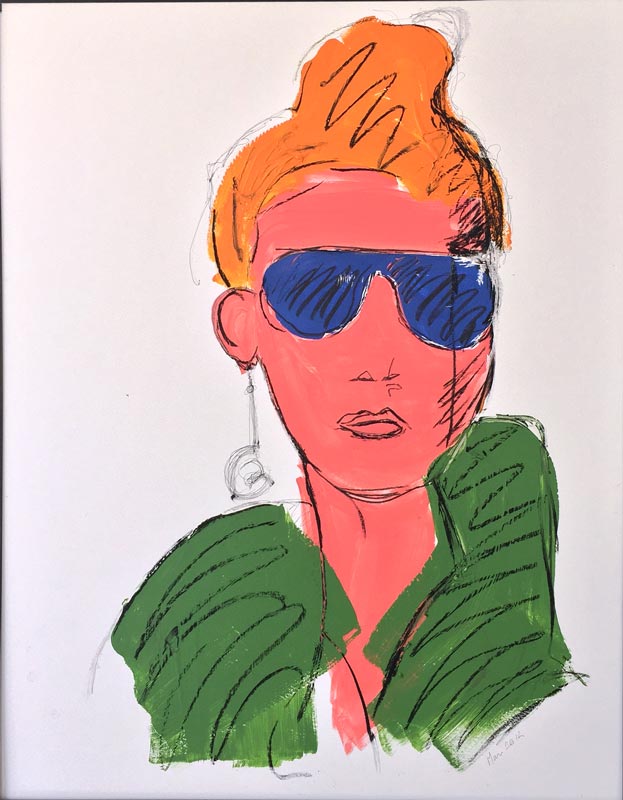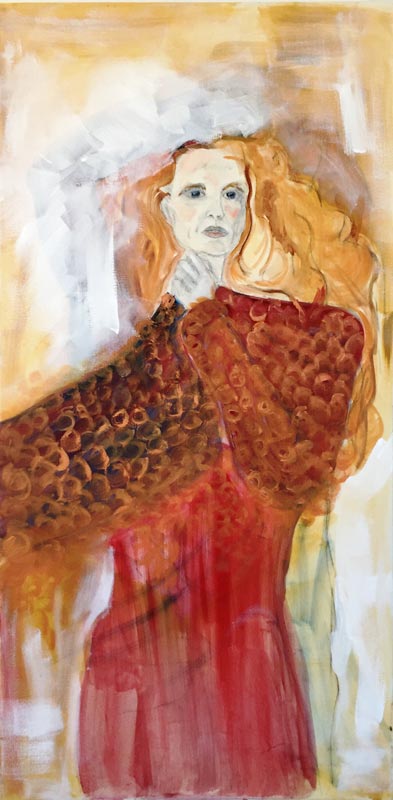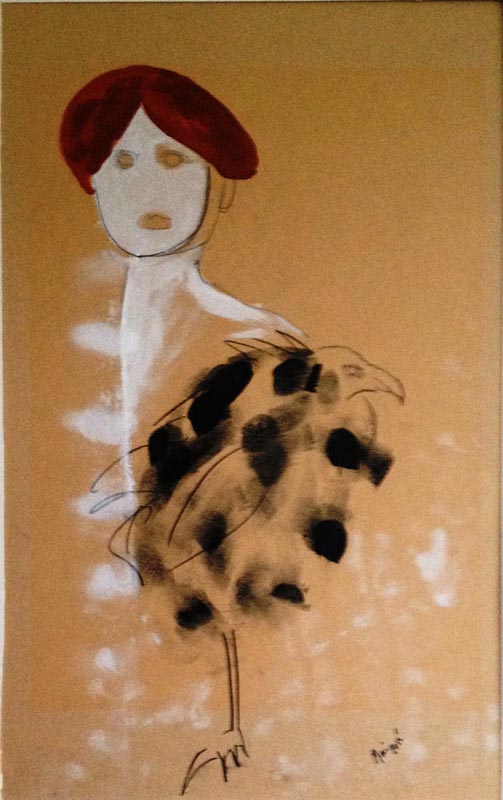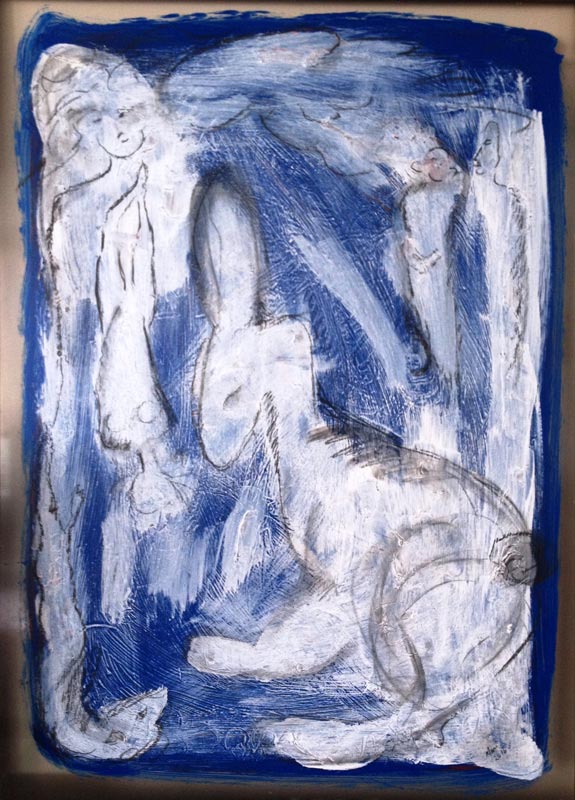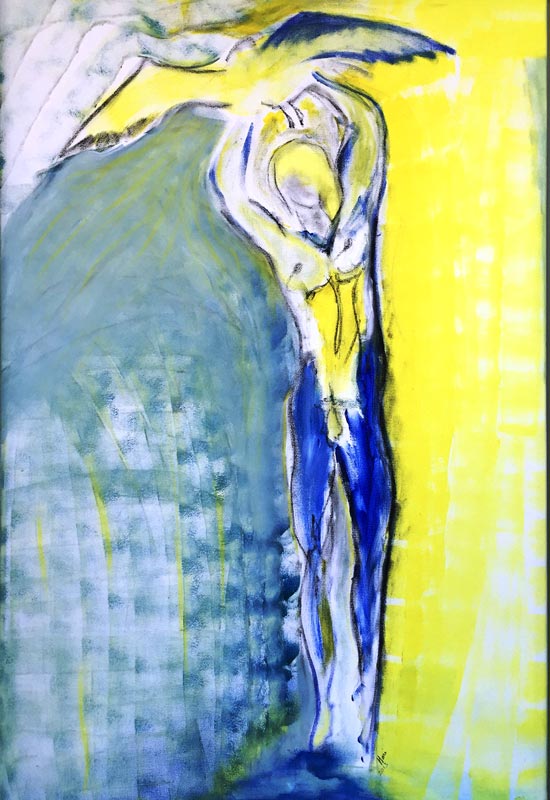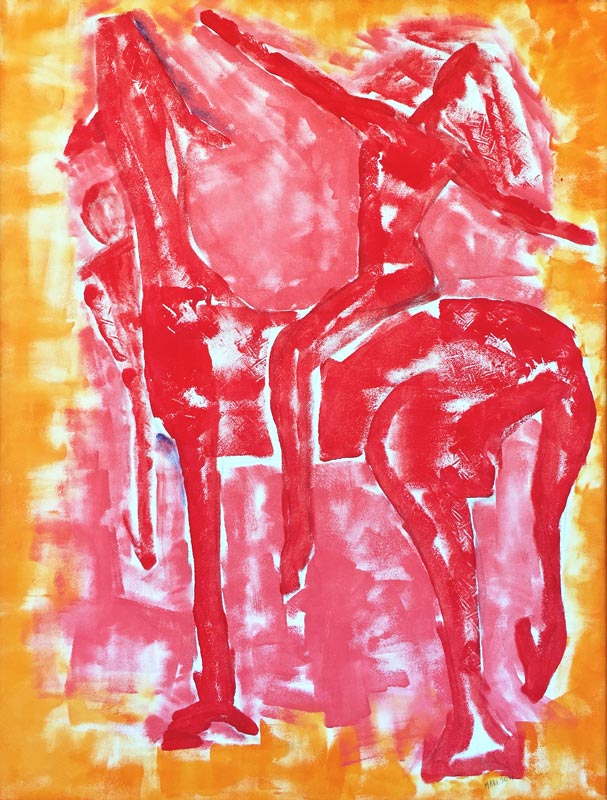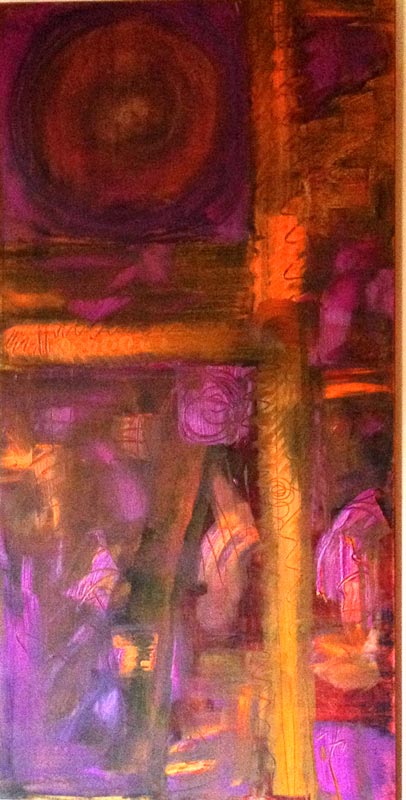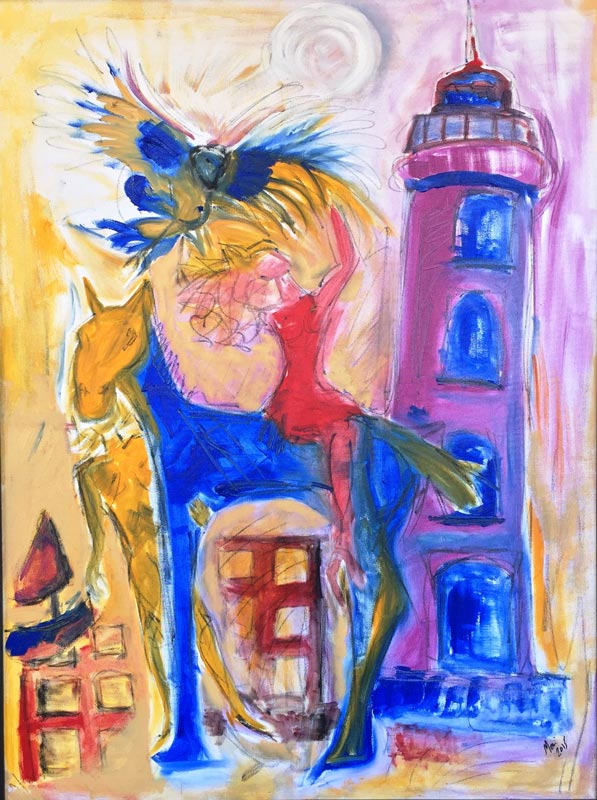Much of Mari’s childhood was spent in dichotomy; half spent in an 18th Century wood log cabin in ‘Canadian Wilderness Country’ in Southern Quebec, with no running water, no electricity, a wood stove for cooking and heating, and a road that was only accessible in fair weather. Once daily functional chores completed, water fetched, outhouse pans emptied, wood brought in for fires, she spent much time communing with the trees and nature, chasing swamp frogs and fireflies, picking wild flowers, and mushrooms, snowshoeing and skating on frozen ponds, painting and making wood sculptures, writing poetry and short stories, singing in the wind, and reading voraciously in the chicken coop.
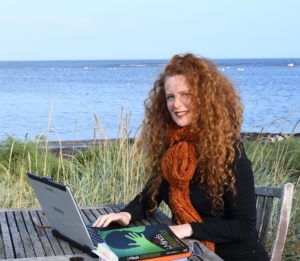 The other half of her time was spent in the city immersed in her family culture of Psychology and Art. She learnt early to focus on the beauty of life rather than on often injudicious and discordant dynamics and relentless bullying at school. School was a place of no place; something she must attend as it was what children did while their parents worked. One of two children of emigrants from New York, a University Professor and an Artist, young Mari was submersed in curiosities and was gifted the desire for exploration; visual, physical, mental, cultural and geographical. She travelled much before the age of twelve, including Italy, Jamaica, much of Canada and the US, Germany, Holland, Greece, Portugal and many years in France. She experienced Franco’s Spain and East Berlin before the fall. She traveled to North Africa and the land of the Moors, before Islam and the West fell into today’s cultural and religious wars. She was no stranger to politics and the harshness of life, be it hearing the experiences of draft dodgers and the military escapees of the Vietnam War met in the woods of Canada, staying with Holocaust survivors in Holland, and sharing meals on the beach in Italy with fishermen with little else but meager wood boats to their name. In France, within a most unique order of nuns, she first experienced what true education was, indeed a place for exploration and learning, new friendships and the sharing of wisdom; not merely a location to hold children to miniature desks. Protected herself by gender and age, she witnessed her older brother and father pick tomatoes and grapes with political and economic migrants to teach her brother work ethic and supplement travel income and school tuition during this great European adventure.
The other half of her time was spent in the city immersed in her family culture of Psychology and Art. She learnt early to focus on the beauty of life rather than on often injudicious and discordant dynamics and relentless bullying at school. School was a place of no place; something she must attend as it was what children did while their parents worked. One of two children of emigrants from New York, a University Professor and an Artist, young Mari was submersed in curiosities and was gifted the desire for exploration; visual, physical, mental, cultural and geographical. She travelled much before the age of twelve, including Italy, Jamaica, much of Canada and the US, Germany, Holland, Greece, Portugal and many years in France. She experienced Franco’s Spain and East Berlin before the fall. She traveled to North Africa and the land of the Moors, before Islam and the West fell into today’s cultural and religious wars. She was no stranger to politics and the harshness of life, be it hearing the experiences of draft dodgers and the military escapees of the Vietnam War met in the woods of Canada, staying with Holocaust survivors in Holland, and sharing meals on the beach in Italy with fishermen with little else but meager wood boats to their name. In France, within a most unique order of nuns, she first experienced what true education was, indeed a place for exploration and learning, new friendships and the sharing of wisdom; not merely a location to hold children to miniature desks. Protected herself by gender and age, she witnessed her older brother and father pick tomatoes and grapes with political and economic migrants to teach her brother work ethic and supplement travel income and school tuition during this great European adventure.
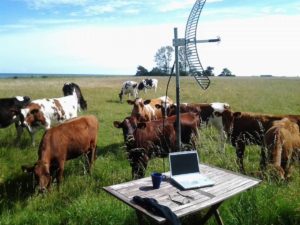 Upon her return to Canada, Mari finished her schooling far too fast; graduating high school at 16 and in quick succession university with a BA in Visual arts at 19. She started a MA, and was experiencing some preliminary success with her painting; winning an honorable mention, a site specific exhibition, and selling here and there, but then felt the educational walls close in once again. She escaped to Toronto and in short sequence back to Europe with $375.00 in her back pocket for what was to be a summer adventure –that lasted almost 8 years. Here she explored her first calling of painting, but also an entirely different world, naught to do with academia or art. Mari soon became immersed in the world of Italian fashion and television, gracing catwalks, Italian Vogue, Cosmopolitan and prime time TV which again afforded her much travel; broadening her experience of central Europe and taking her further to Asia and beyond. But mental restlessness, accentuated by this superficial world, soon came to her once again. The sequential loss of dear friends to accident and crime also made her question purpose. It was time to return to roots and explore her mind. She taught English briefly and was soon promoted to specialized programs and curriculum development. But Canada was calling her home, this time to the West coast. Over the course of the next decade, Mari studied, explored and practiced in multiple facets of Education, and Psychology. The family all on one continent again, Mari’s parent’s and maternal grandmother soon joined her from Boston and New York, and she settled into developing what is now the Swingle Clinic with her father, Dr. Swingle senior.
Upon her return to Canada, Mari finished her schooling far too fast; graduating high school at 16 and in quick succession university with a BA in Visual arts at 19. She started a MA, and was experiencing some preliminary success with her painting; winning an honorable mention, a site specific exhibition, and selling here and there, but then felt the educational walls close in once again. She escaped to Toronto and in short sequence back to Europe with $375.00 in her back pocket for what was to be a summer adventure –that lasted almost 8 years. Here she explored her first calling of painting, but also an entirely different world, naught to do with academia or art. Mari soon became immersed in the world of Italian fashion and television, gracing catwalks, Italian Vogue, Cosmopolitan and prime time TV which again afforded her much travel; broadening her experience of central Europe and taking her further to Asia and beyond. But mental restlessness, accentuated by this superficial world, soon came to her once again. The sequential loss of dear friends to accident and crime also made her question purpose. It was time to return to roots and explore her mind. She taught English briefly and was soon promoted to specialized programs and curriculum development. But Canada was calling her home, this time to the West coast. Over the course of the next decade, Mari studied, explored and practiced in multiple facets of Education, and Psychology. The family all on one continent again, Mari’s parent’s and maternal grandmother soon joined her from Boston and New York, and she settled into developing what is now the Swingle Clinic with her father, Dr. Swingle senior.
Mari’s first exposure to computer technology was as a young child in her father’s university labs; she became fascinated with what were then floor to ceiling, wall to wall devices; full of exposed circuitry boards, flashing lights, clicking sounds, and wires of every possible color connecting everywhere. Here, she would help her father solder connections and then make bracelets and odd sculptures out of the old discarded wires. Her first computer was a Hyperion at the age of 17, a mere word processor at the time, but exalted for its annihilation of the typewriter ribbon and the eradication of white-out. There were odd little games to be played on these new screens too; but these captured her brother more than she.
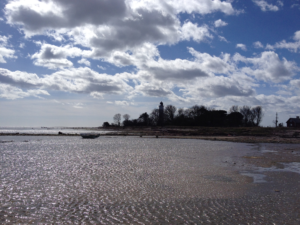 Mari married twice, once to a lovely Italian man met at twenty, with whom over time, paths led to different choices and directions, the second time in her thirties to tragedy, the loss of a son, and the marriage soon after. But loss fueled her drive and artistry and in 2010 Mari started once again avidly painting and laying the grounds for her seminal doctoral research.
Mari married twice, once to a lovely Italian man met at twenty, with whom over time, paths led to different choices and directions, the second time in her thirties to tragedy, the loss of a son, and the marriage soon after. But loss fueled her drive and artistry and in 2010 Mari started once again avidly painting and laying the grounds for her seminal doctoral research.
Today Dr. Mari lives and practices in Vancouver, but still has a very strong foothold in Europe. She travels often to her companion in Sweden to write in a unique community of birders, farmers, intellectuals and artists on an island in the Baltic Sea. It was here in the shadow of Segerstad lighthouse, on a beach of shale fossils, a flock of wild swans bobbing before her, a herd of friendly cows belting behind her, internet access governed by the whim of the wind, that she started and completed i-Minds. Dr. Mari still follows her other passions, mainly singing, skiing and painting and any activity that keeps her close to mountains, wind and water.



